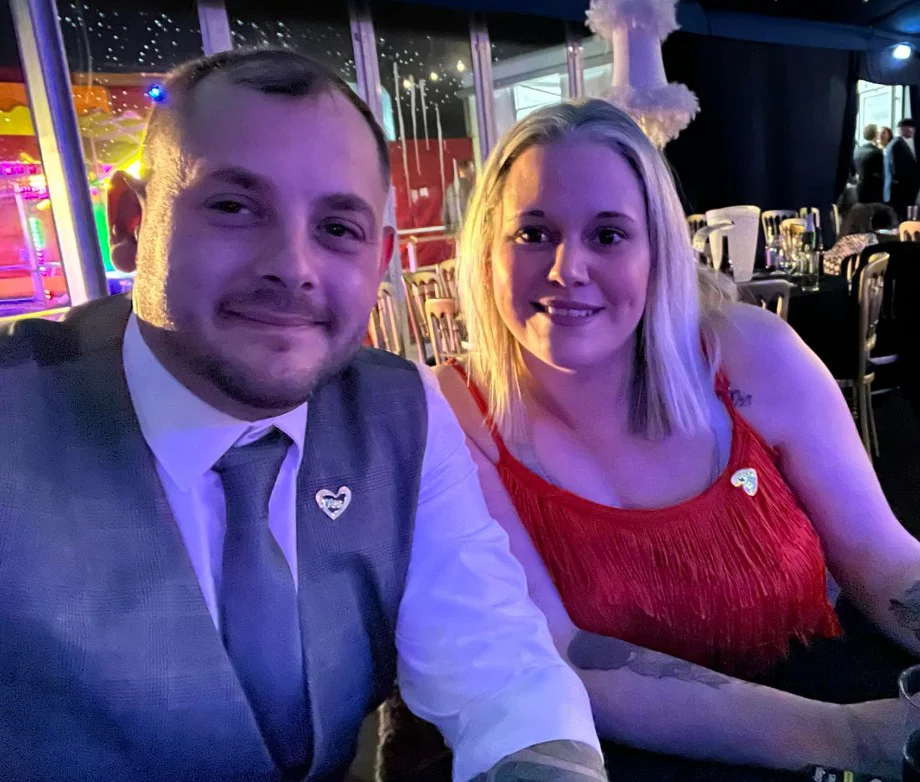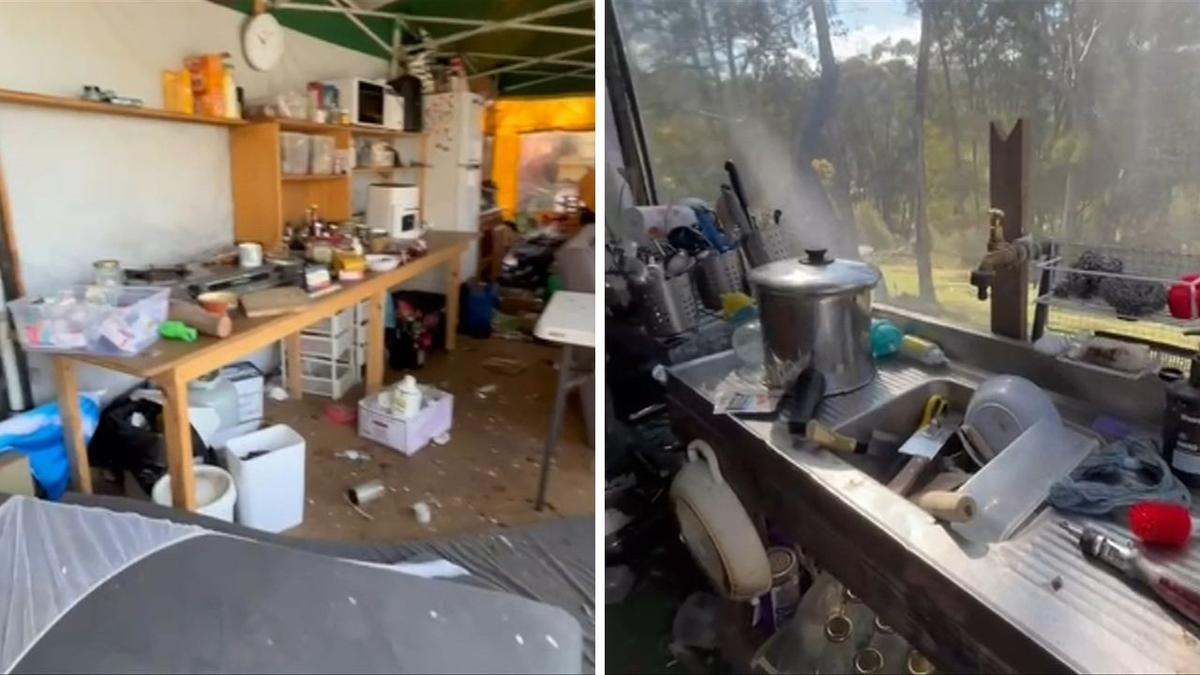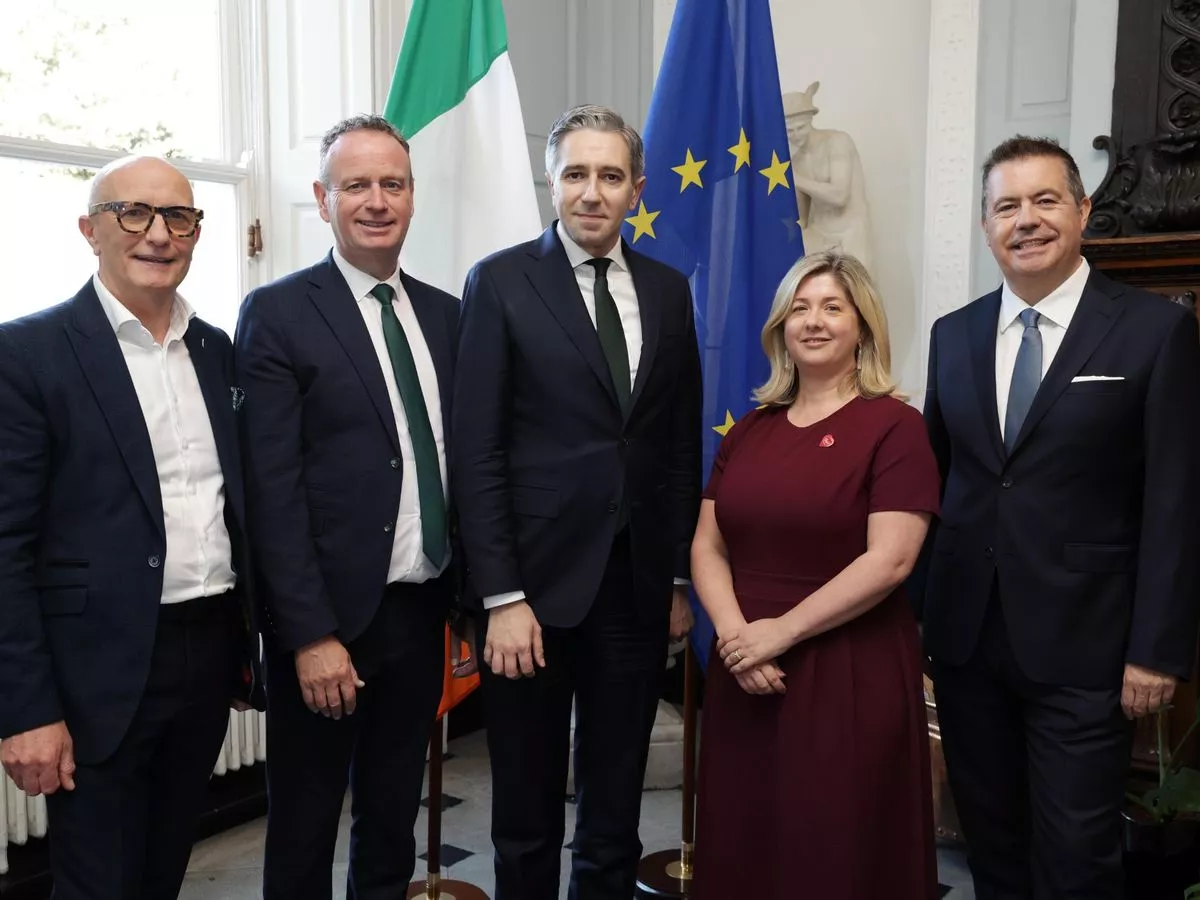By Tristan Kirk
Copyright standard

Parents whose nine-year-old son died from cancer cannot use nearly £100,000 of charity donations to pay for treatment for his little sister who is also terminally ill, a judge has ruled.
Lego-loving Kyle Morrison tragically died after being diagnosed with a rare and incurable childhood brain cancer, leaving heartbroken parents, Craig Evison and Victoria Morrison, behind.
Before Kyle’s death, well-wishers donated thousands to an online fundraiser to pay for treatment in the US.
But he never made the trip because the Covid pandemic struck, and he died in October 2020.
His parents had a daughter, Ruby-Rose, in 2022, but were devastated to learn that she too was terminally ill with a genetic metabolic disease and was unlikely to live beyond this year.
They set-up a new online fundraising campaign to cover the costs of her treatment and to take her to Disney in Florida to meet her beloved Minnie Mouse.
However children’s cancer charity Gold Geese, which facilitated Kyle’s fundraiser, said nearly £100,000 in donations sent in for the couple’s son cannot be used to meet their daughter’s needs and “make memories” with her.
Gold Geese told the parents, from Cheshunt in Hertfordshire, it could not hand the money over because Ruby-Rose doesn’t have cancer and those who gave the gifts had expected the cash to help Kyle or other kids with his condition.
At the High Court this week, Deputy Master Marc Glover ruled the money cannot be spent on Ruby-Rose and will instead be split by Gold Geese between two charities helping sufferers of diffuse intrinsic pontine glioma (DPIG), the cancer that claimed Kyle’s life.
The court had been told how Kyle was diagnosed with the rare and incurable cancer in 2019 when he was only eight-years-old.
Fundraising attempts began on Facebook, before passing to Essex-based charity Gold Geese which works specifically for the benefit of cancer-stricken children.
Kyle was due to go to the US for treatment in 2020, but Covid restrictions thwarted his travel, and he was too sick when the trip could be rearranged.
Ruby-Rose was diagnosed shortly after she was born with Megdel syndrome, a genetic metabolic condition characterised by high levels of acid in the body, which is usually fatal in early infanthood.
“We just want the money to make as many memories as we can”, Mrs Morrison told the judge.
But the charity’s barrister William Moffett said the money could legally only be used for the specific purpose it was donated for by the well-wishers – for children with cancer, and not other diseases.
A contract which the couple agreed stated that, if the money wasn’t spent on their son’s treatment before he died, it would go to another DPIG trial or the cause of a child in a “similar” position.
“Gold Geese is a cancer charity, it’s on its logo. There are other charities whose objects would include assisting someone with Ruby-Rose’s condition, but it wouldn’t be proper for Gold Geese to stray outside the illness of child cancer.
“The charity is trying to do what they’re legally obliged to do within the ambit of their purpose.”
The couple said that although they had agreed the contract, the situation changed when their little girl was also diagnosed with a life-limiting illness.
They argued that the contract allows money to be spent for Ruby-Rose’s benefit, since she falls into the definition of a “similar” case, as stated in the agreement.
At the judgment hearing this week, Mrs Morrison told the judge “the majority of the public wants us to have the money”, producing a series of letters, emails and messages from donors and supporters who she said were expressing that wish.
The judge said those sentiments were “entirely understandable”, but added: “The function of this court is to apply the law to the facts. In spite of the heartache to the family due to the surrounding circumstances, it must reach a just and fair decision.”
Giving his ruling, the judge said both the parents and the charity have “decent and honourable” aims for the money.
“The main question to be decided is were the donations intended only to be for Kyle’s treatment alone or were they intended to benefit all children suffering from DPIG, of which Kyle was one.”
The judge went on to find that the donors intended the money to go to DPIG sufferers or research into the disease.
He pointed out that tens of thousands of pounds of the donations had in fact been made in the name of another child who had died from DPIG prior to Kyle and diverted to his fund by that child’s parents.
He also said that specific statements had been made during the online campaign, stating that if Kyle died before treatment the money would go to DPIG causes.
The campaign had “made clear to donors that in the event of his passing any funds would be distributed between other DPIG charities” and “such terms were made clear to Victoria and Craig,” the judge said.
“At that time, the parties were of one mind and were advising that objective to potential donors.
“It is entirely understandable why, after the birth of their daughter in 2022 and her diagnosis in 2023 with a terminal illness, Victoria and Craig would now like the fund to be applied towards their daughter.
“Whilst that desire is understandable, it cannot inform the finding of the court [as to the] desire of the donors when donating to the fund.
“This judgment will come as a disappointment to Victoria and Craig. No person can help but be moved by their experience and the tragic loss of Kyle.”
However, he said he hoped they would “take some comfort” from the fact that the money would be going to help fund DPIG research, and that their efforts had helped “raise awareness of this awful childhood cancer”.
Lawyers for the charity told the judge Gold Geese would not be seeking to claim court costs from the couple and the charity were given permission to recoup their legal fees from the fund collected for Kyle.
Whatever is left will now be divided between two DPIG charities.
The court heard that the fund was also used to pay for Kyle’s funeral and Mr Evison has requested that it also be tapped to provide a memorial bench in Kyle’s name.



